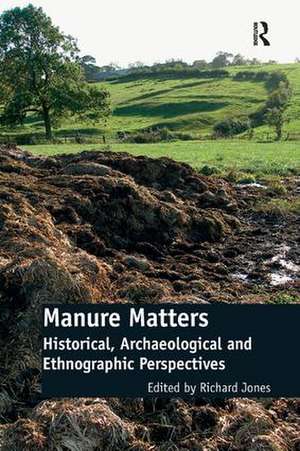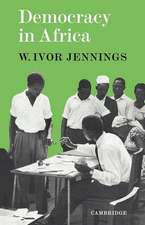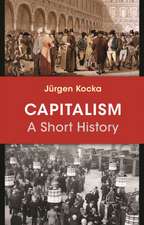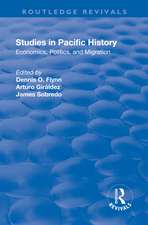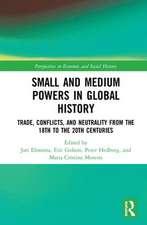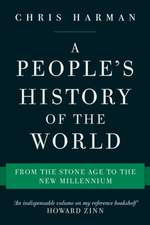Manure Matters: Historical, Archaeological and Ethnographic Perspectives
Editat de Richard Jonesen Limba Engleză Paperback – 24 mai 2017
| Toate formatele și edițiile | Preț | Express |
|---|---|---|
| Paperback (1) | 416.22 lei 6-8 săpt. | |
| Taylor & Francis – 24 mai 2017 | 416.22 lei 6-8 săpt. | |
| Hardback (1) | 1061.06 lei 6-8 săpt. | |
| Taylor & Francis – 16 apr 2012 | 1061.06 lei 6-8 săpt. |
Preț: 416.22 lei
Nou
Puncte Express: 624
Preț estimativ în valută:
79.65€ • 82.85$ • 65.76£
79.65€ • 82.85$ • 65.76£
Carte tipărită la comandă
Livrare economică 14-28 aprilie
Preluare comenzi: 021 569.72.76
Specificații
ISBN-13: 9781138107625
ISBN-10: 113810762X
Pagini: 264
Dimensiuni: 156 x 234 x 14 mm
Greutate: 0.45 kg
Ediția:1
Editura: Taylor & Francis
Colecția Routledge
Locul publicării:Oxford, United Kingdom
ISBN-10: 113810762X
Pagini: 264
Dimensiuni: 156 x 234 x 14 mm
Greutate: 0.45 kg
Ediția:1
Editura: Taylor & Francis
Colecția Routledge
Locul publicării:Oxford, United Kingdom
Notă biografică
Richard Jones is Lecturer in Landscape History in the Centre for English Local History at the University of Leicester. He has published widely on settlement history, agriculture, place-naming and nature in the middle ages including The Medieval Natural World (Longman) and two co-authored books Medieval Villages in an English Landscape: Beginnings and Ends (Windgather Press) and Thorps in a Changing Landscape (University of Hertfordshire Press). He is also co-editor of Deserted Villages Revisited (University of Hertfordshire Press) and Sense of Place in Anglo-Saxon England (Shaun Tyas).
Recenzii
'This is a topic that richly deserves detailed consideration of this sort since it is relevant to all agrarian regimens, and is a rich subject for comparative work. As the authors show, unlike many aspects of agrarian history manuring practices leave archaeological, documentary, and literary evidence. It will be a valuable source of reference, as well as a stimulus to archaeologists and historians to think more deeply about this vital topic.' Richard Britnell, University of Durham, UK '... Manure Matters offers important starting points to further discussion and to direct future research.' Bryn Mawr Classical Review '... I found parts of this collection of academic essays by different authors absolutely fascinating - and even a reader without my special interest would, I think, also do so... you mightn't think a book about the history of manure is to your taste - but you might be surprised if you have an interest in social history.' Blogcritics '... it is extremely useful to have such a range of topics from several academic disciplines within a single volume. [...] Manure Matters serves to remind us that manuring sits at the heart of sustainable agriculture and that archaeology provides an ideal long-term evidence base for such investigations.' Antiquity '... Richard Jones is to be congratulated on making a compelling case for the fertility of this field.' Medieval Settlement Research
Cuprins
Chapter 1 Why Manure Matters, RichardJones; Chapter 2 Science and Practice, RobertShiel; Chapter 3 Middening and Manuring in Neolithic Europe, AmyBogaard; Chapter 4 (Re)cycles of Life in Late Bronze Age Southern Britain, KateWaddington; Chapter 5 Organic Geochemical Signatures of Ancient Manure Use, IanBull, RichardEvershed; Chapter 6 Dung and Stable Manure on Waterlogged Archaeological Occupation Sites, HarryKenward, AllanHall; Chapter 7 Manure and Middens in English Place-Names, PaulCullen, RichardJones; Chapter 8 The Formation of Anthropogenic Soils Across Three Marginal Landscapes on Fair Isle and in the Netherlands and Ireland, BenPears; Chapter 9 Zibl and Zir?’a, DanielVarisco; Chapter 10 Understanding Medieval Manure, RichardJones; Chapter 11 Lost Souls, HamishForbes; Chapter 12 Manure, Soil and the Vedic Literature, VanajaRamprasad; Chapter 101 Postscript;
Descriere
In pre-industrial societies in which the majority of the population lived directly off the land, few issues were more important than the maintenance of soil fertility. Manure really mattered, as without access to biodegradable wastes from production processes or to synthetic agrochemicals, early farmers continuously developed strategies aimed at adding nutritional value to their fields using locally available natural materials. In this book, international scholars working on social, cultural, and economic issues relating to past manure and manuring, use textual, linguistic, archaeological, scientific and ethnographic evidence as the basis for their analyses spanning the Neolithic through to the modern period, with studies from the Middle East, Britain and Atlantic Europe and India.
